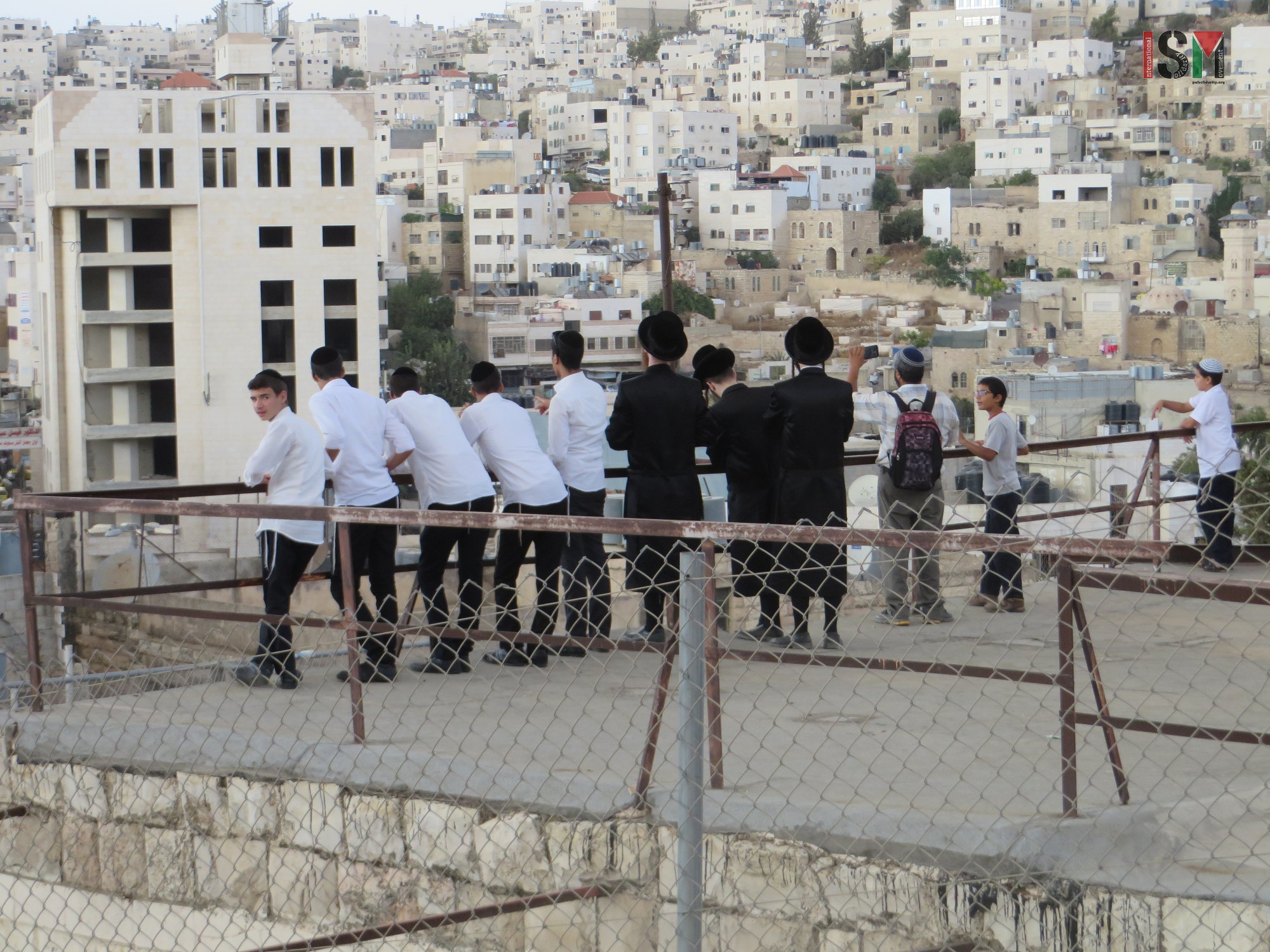Tag: Settlers
-
Three young Palestinians arrested on violent settler’s allegations
1st October 2015 | International Solidarity Movement, Al-Khalil team | Hebron, occupied Palestine Today, October 1st 2015, a 14-year old boy was arrested by Israeli forces in occupied al-Khalil (Hebron) after being accused of stone-throwing by a settler notorious for harassing Palestinians. Mohammed Imad Abu Shamsiyye was taken by Israeli soldiers from right outside his…
-
Settler violence sharply escalates in Hebron during Sukkot holiday
30th September 2015 | International Solidarity Movement, Al-Khalil team | Hebron, occupied Palestine On the second day of the Jewish Sukkot holiday, hundreds of settlers continued filing into al-Khalil (Hebron) creating mass restrictions and sharp escalations in violence against Palestinians living here. Over a period of two hours dozens of them continuously invaded the roof…
-
Palestinian teen shot in Hebron by Israeli forces dies from injuries
22nd September 2015 | Ma’an News Agency | Hebron, occupied Palestine A Palestinian teenager shot by Israeli forces at a checkpoint in Hebron died from her injuries on Tuesday, Israeli medical sources said. The teenager, identified as 18-year-old Hadeel al-Hashlamon, was shot three times by Israeli soldiers after allegedly attempting to carry out a stabbing…



